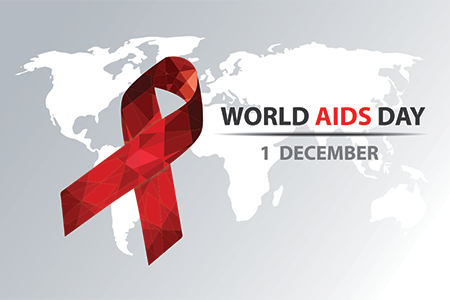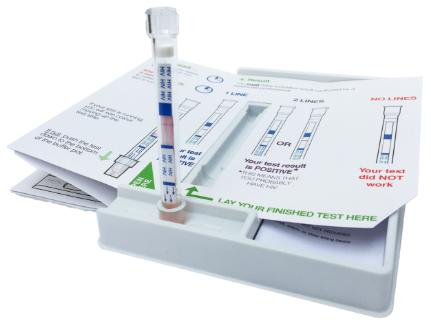News
World Aids Day 2020
Ms. Seema Naidoo Founder & CEO Hope to Heal Foundation

World AIDS Day was the first global health day, held for the first time in 1988. Annually on the 1st December each year people globally have the opportunity to unite in the fight against HIV and to show their support for people living with HIV and to also commemorate people who died from the epidemic.
World AIDS Day is one of the eleven official global health campaigns marked by the World Health Organisation (WHO).
As of 2017, AIDS has killed between 28.9 million and 41.5 million people worldwide, and an estimated 36.7 million people are living with HIV, making it one of the most important global public health issues. Thanks to recent improved access to antiretroviral treatment in many regions of the world, the death rate from AIDS epidemic has decreased since its peak in 2005 (1 million in 2016, compared to 1.9 million in 2005).
How Soon After Exposure to HIV Can an HIV Test Detect If You Are Infected?
If you think you have been exposed to HIV, in the last 72 hours, talk to your health care provider right away. The time between when a person gets HIV and when a test can accurately detect it is called the window period. The window period varies from person to person and depends upon the type of HIV test.
If you get an HIV test after a potential HIV exposure and the result is negative, get tested again after the window period. Remember, you can only be sure you are HIV-negative if:
- Your most recent test is after the window period
- You have not had a potential HIV exposure during the window period. If you do have an exposure, then you will need to be retested.
Is Self-Testing an Option?
Yes, HIV self-testing allows people to take an HIV test and find out their result in their own home or other private location. Bio-Sure Self-Test can produce results within 15 minutes.
Why BioSure?

No HIV test is easier. Our test simply requires a fraction of a drop of blood and you get your own easy to read result in just 15 minutes.
Our HIV Self-Test was the first test to be CE marked and is the only approved test available in South Africa. This means we have proved that our product is easy for you to use and at least 99.7% accurate. The negative line can only appear if you have done everything correctly and it puts you in control.
What is most needed to control the the HIV epidemic?
Strengthen health centers, satellite clinics, and health workers so more people in more places, especially adolescents and those lost-to-follow-up have access to the HIV services they need.
Promote testing in communities, facilities, and at hotspots so people know their status and can initiate treatment as early as possible.
Education and awareness plays a critical role in vulnerable communities.
COVID-19 -Disruptions in prevention and care could threaten progress toward ending the HIV epidemic.
The pandemic has had a major impact on HIV prevention and care. HIV testing and viral load monitoring declined during early shutdowns of health services. HIV services have also been affected at the global level. Because COVID-19 threatens to set back progress towards ending HIV, experts stress that HIV prevention and care are essential services and that people at risk for and living with HIV should continue to seek care.
It is vital for Global Leaders, and the public to rally for “global solidarity” to maintain essential HIV services during COVID 19 and beyond. It is a call to focus on vulnerable groups who are already at risk and expand coverage to children and adolescents.
By keeping the focus on the needs and rights of key populations, we have the power to prevent new HIV infections and ensure those living with AIDS are not left behind. Let us all contribute to the efforts to end AIDS and make the world a healthier place.
www.hopetoheal.org.za
